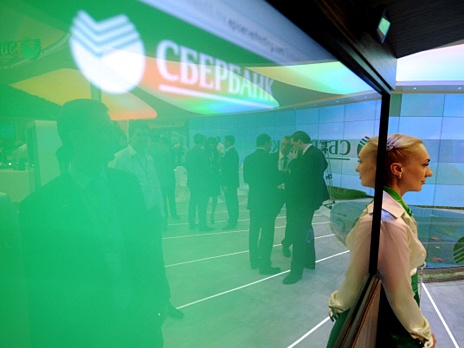
Published 6-09-2012, 09:07
 Sberbank continues
its slow creep into western Europe with the acquisition of a 70% stake in
French bank BNP Paribas consumer finance unit for RUB5.1bn ($170m), Interfax
reported, citing Senior Vice President Denis Bugrov.
Sberbank continues
its slow creep into western Europe with the acquisition of a 70% stake in
French bank BNP Paribas consumer finance unit for RUB5.1bn ($170m), Interfax
reported, citing Senior Vice President Denis Bugrov.
The Russian bank will use the new unit to expand its point of sale (POS)
operations in France and Europe operating under the Cetelem brand, which has a
4.5% share of the French market. BNP Paribas retains the remaining 30% in the
consumer unit. The joint venture is targeting a return on equity of 20% in 2-3
years (comparable with Sberbanks), according to VTB.
In the longer term the JV has very ambitious plans: within the next 3-4 years,
Sberbank wants to reach a leading position in the POS market, with a 25% market
share, and expects the POS segment to grow 15-20% year-on-year during this
period. Apart from POS products, the new JV is to offer car loans, as well as
credit cards and loans to Cetelem customers.
VTB said in a note: "The expansion in POS lending and the JV with Cetelem
are in line with Sberbank's earlier guidance. We think that the bank will be
able to reach its targets, as it has done in the credit card segment, where
Sberbank became the leader in less than two years. Focusing on POS lending
would support NIM and loan growth, although the size of the JV is insignificant
compared with the bank's size. However, we note that the mass segment, which
Sberbank is to enter is already overheated. We might therefore see a reduction
in loan growth by 2012 year end, while intensifying competition could put
pressure on NIM. All in all, we remain cautious on the deal. Currently, its
valuation is unclear."
Since CEO German Gref took over Sberbank has been slowly expanding its reach
through a series of acquisitions and new foreign operations.
Sberbank bought control of the eastern European operators of Oesterreichische
Volksbanken AG for €505m in February and followed up with the purchase of
Turkey's Denizbank in June for $3.5bn. The bank also looked hard at buying
Kazakhstan's troubled BTA bank, but it seems that deal will not happen.
In addition Sberbank has rolled out its own subsidiary operations in other
countries of the Commonwealth of Independent States (CIS) and is already a
major player on the Ukrainian market.
And the bank has moved into investment banking with the acquisition of Troika
Dialog in January for a reported $1bn.
Russia's state own banks are becoming increasingly aggressive and in Sberbank's
case, more nimble, driving a de facto consolidation of the Russian banking
sector that has mainly impacted foreign players on the Russian market so far.
Now the Russian banks are moving into a new international phase. For most of
the 90s the expansion model Russian banks followed was to capture a group of
big industrial companies and use their steady business as a platform on which
to build non-related party commercial business.
However, the state-owned banks have taken this model and scaled it up to a
national level: increasingly it seems as if Russian state-owned banks are
taking their domestic business and using that as a platform to expand
internationally.
BNE



.jpg/250px-ElbeDay1945_(NARA_ww2-121).jpg)





